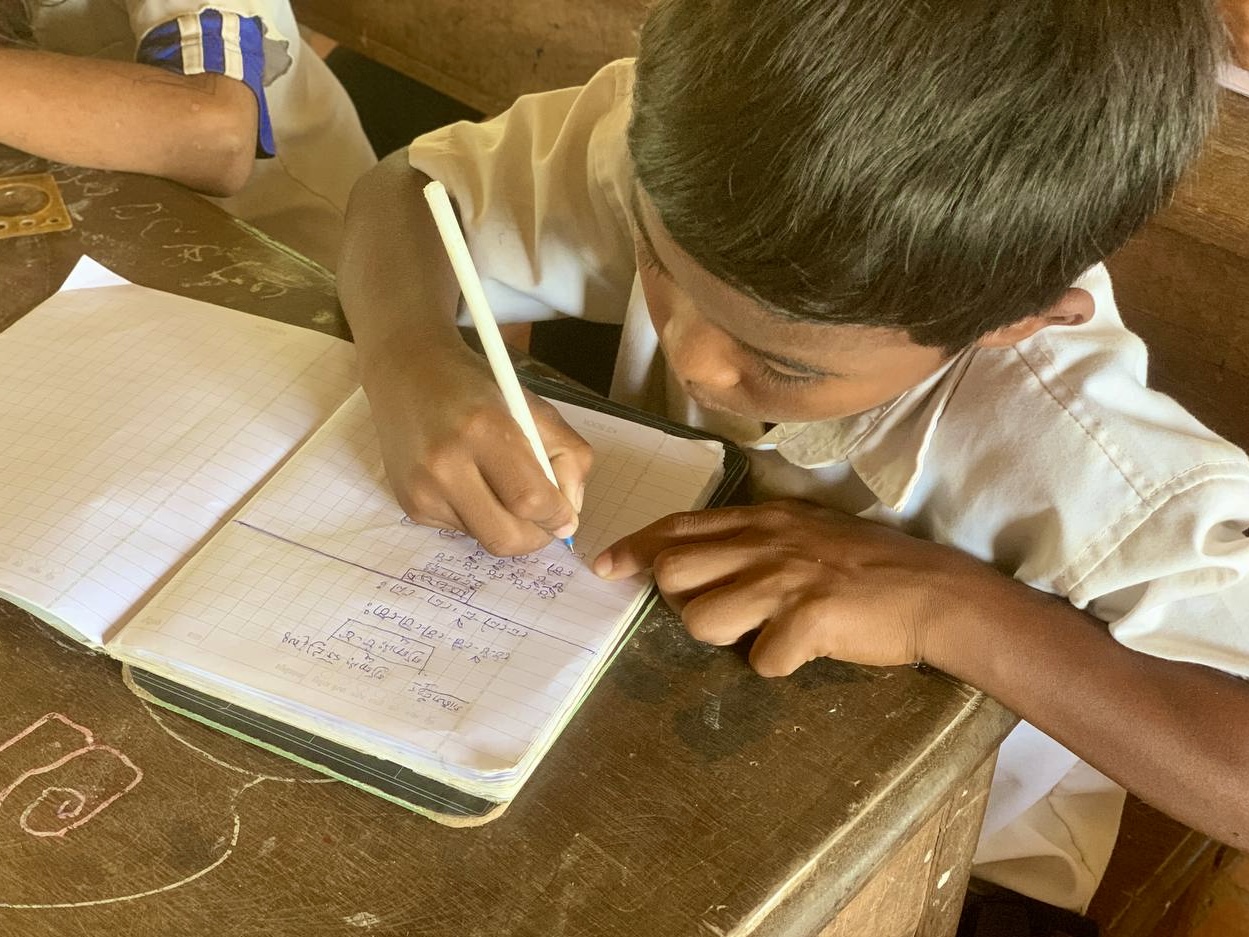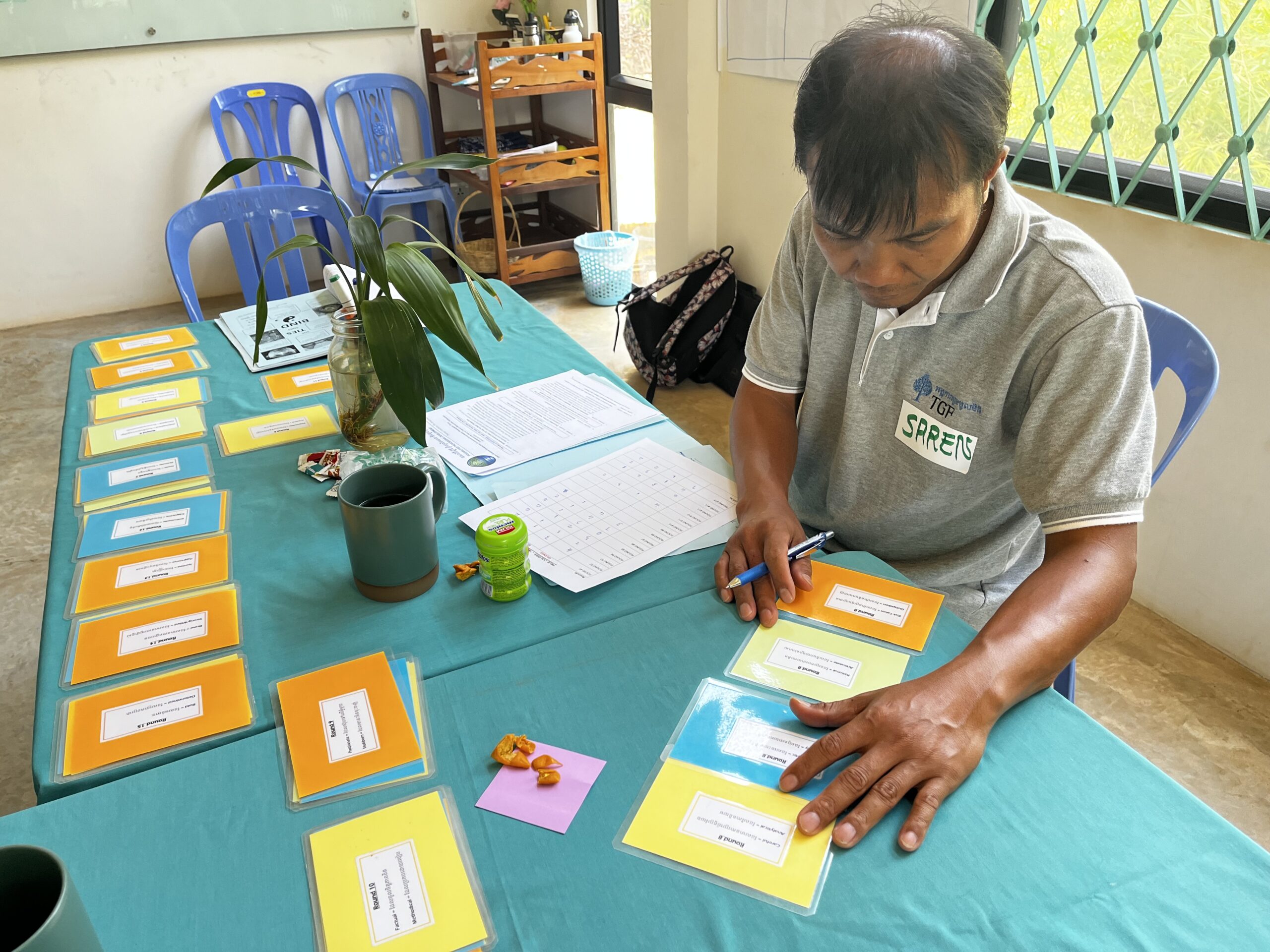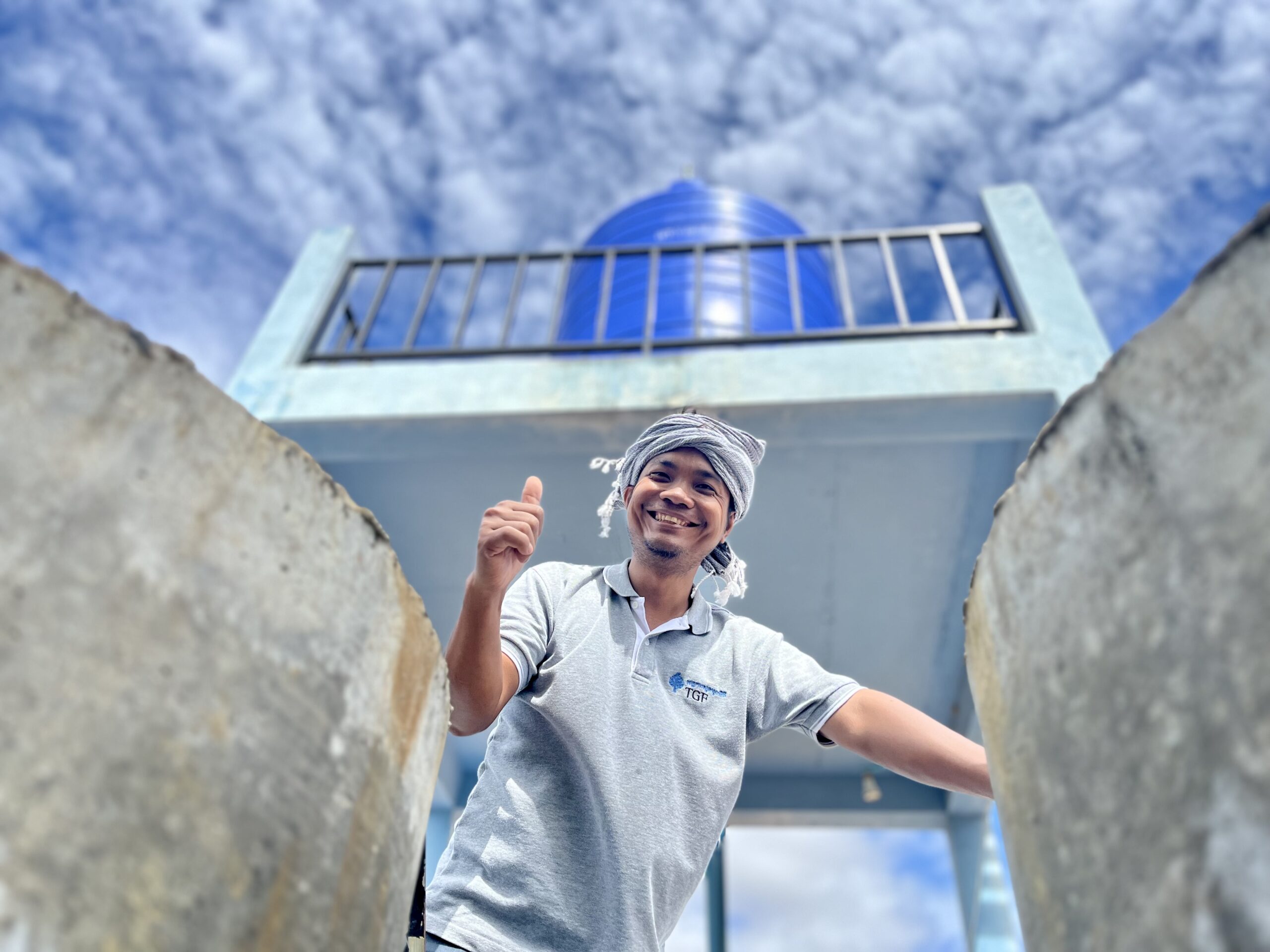‘It’s the effort of local human resources that makes development projects sustainable,’ says Saren, one of TGF’s senior programme managers, and this could well be TGF’s mantra. Indeed, without the commitment, dedication and expertise of local staff, any NGO would struggle to make a lasting impact on its target communities. Support and empowerment of our Cambodian workforce is therefore a cornerstone of TGF’s approach to development. In this article, we profile three of TGF’s longest-serving employees – our programme managers – to highlight their vital contributions.
Education: Eap Tara
‘Improving the quality of education in Cambodia requires close, lasting relationships with the people on the ground – the teachers themselves,’ says Tara, manager of TGF’s Education Programme. He ought to know, having worked as an English teacher in both private and public schools for several years before joining TGF.
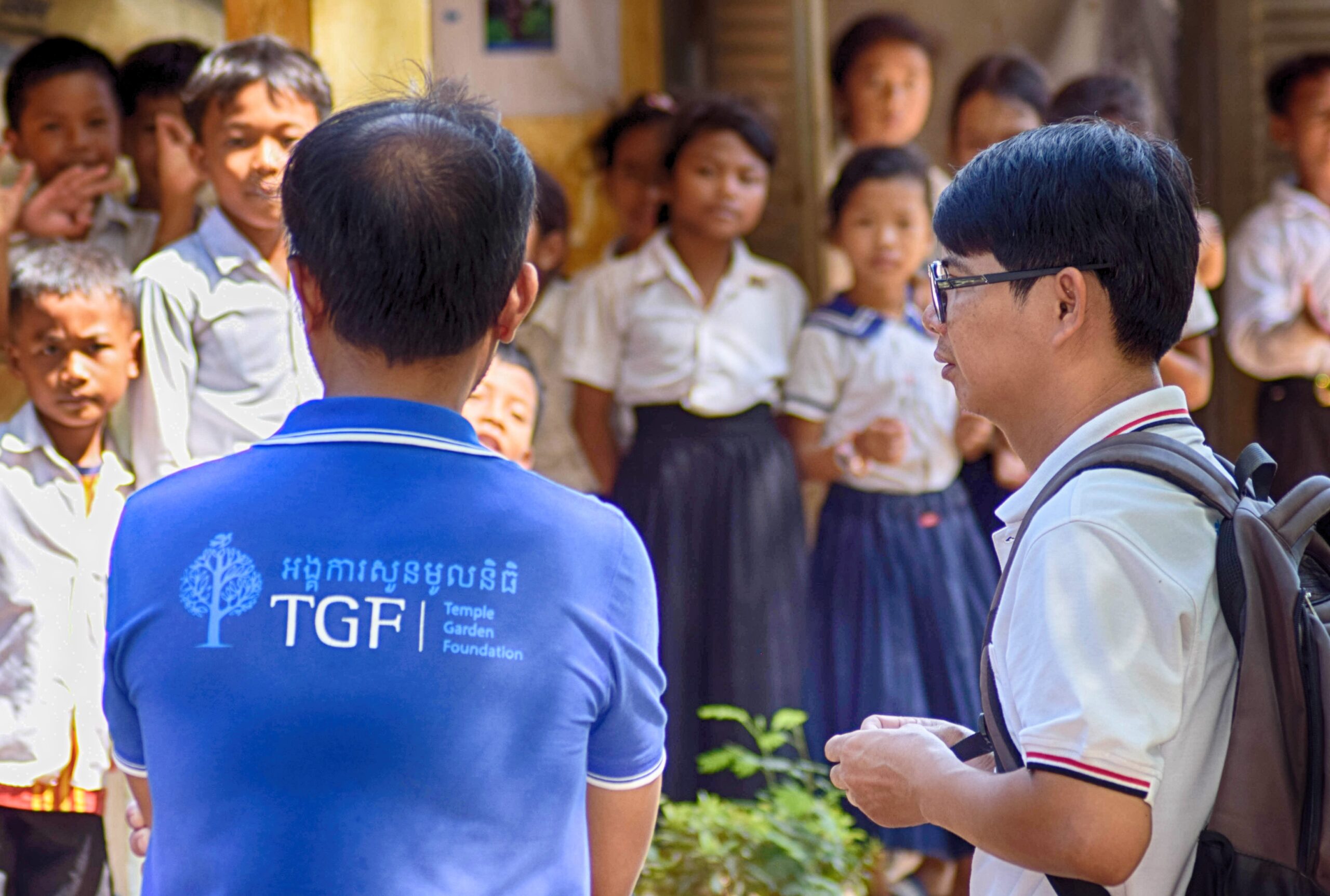
Tara grew up in Kampong Thom province, where he often accompanied his father, a farmer, to survey the fields – an experience that helped him understand rural livelihoods and how to communicate with and motivate the rural poor. He studied human resource management at university, but also earned a pedagogical certificate for teaching English and Khmer, and taught in Takeo and Kampong Thom provinces. In 2010 he responded to a vacancy announcement for an education assistant at TGF, and he’s been here ever since, making him TGF’s longest-serving staff member. Now 43, Tara is married and has two children.
‘The beneficiaries we work with remind me of my neighbours when I was young’, he explains. ‘I can see the impact we’re having on their lives. For example, we’ve trained 11 community kindergarten teachers who now have proper jobs and salaries, so they can both support their own families and help educate the children in their villages. These are the stories that make my work worthwhile.’
Tara can also reel off some numbers to back up the stories: ‘Before TGF came to Chikraeng district, 0% of children aged 3–4 attended classes, but now the vast majority of them go to pre-school: 92% of 4-year-olds and 84% of 3-year-olds’, he beams.
So, will he stay at TGF forever? Possibly, he says, but he also sees himself transitioning into educational research at a university or institute in 5–10 years’ time, so that he may pass on everything he’s learned in over two decades of field work.
WASH: Roert Saren
Saren hails from Battambang province, where he grew up in a family of farmers. As a boy he dreamt of working for an NGO because he appreciated the earnest efforts of local NGOs to support villagers in his district.
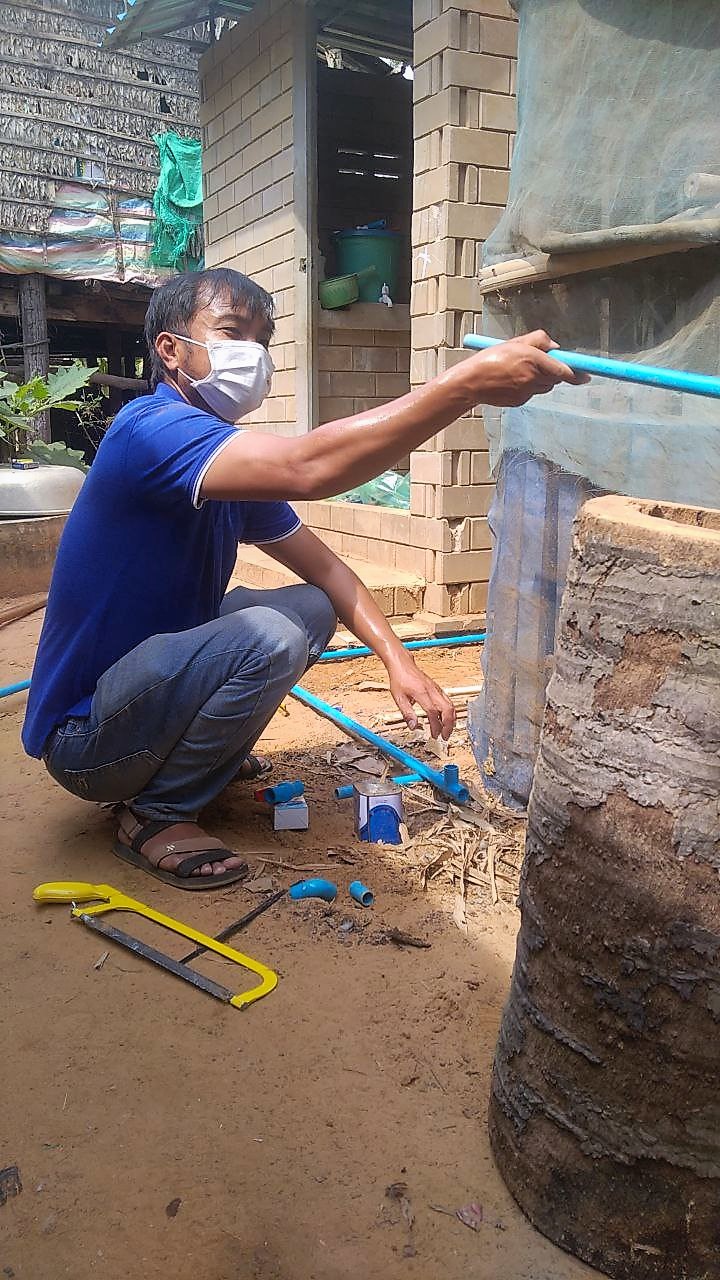
After he finished school, Saren attended the Royal University of Agriculture and earned a bachelor’s degree in agricultural economics and rural development. In 2008 he moved to Siem Reap to start his first full-time job for an NGO. In 2012 he joined TGF as a coordinator in our Water & Sanitation Programme, of which he is now the manager.
‘I’m happy to see the impact we’re having in our target communities,’ says Saren. ‘Our WASH programme works in five communes – that’s over 60 villages – where we have now installed thousands of latrines. 2014 was a record year: we managed to build 2,000 of them!’
TGF has certified two of the communes as open defecation-free (ODF), and the others are well on their way. ‘I can see that over 90% of the villagers across the five communes now have access to latrines and clean water,’ explains Saren.
What else makes working at TGF special? ‘It’s different here,’ he continues. ‘Though TGF has a modest budget compared with some other NGOs, we use it very effectively. In particular, TGF has invested in training beneficiaries and empowering local staff. We’re able to achieve a lot because we’re in close contact with the villagers and always try to get them involved, so our project implementation has a high success rate. That’s what we do well at TGF – we build community, not just sanitation facilities.’
Income Generation: Son Chea
Chea grew up in Prey Veng province just east of Phnom Penh, where the main economic activity is rice farming. After finishing school, he received a scholarship to attend Maharishi Vedic University, where he earned a degree in agricultural science with a focus on rural development. After university he worked for several NGOs, including the Red Cross and Caritas, before joining TGF in September 2018 as manager of the Income Generation Programme.
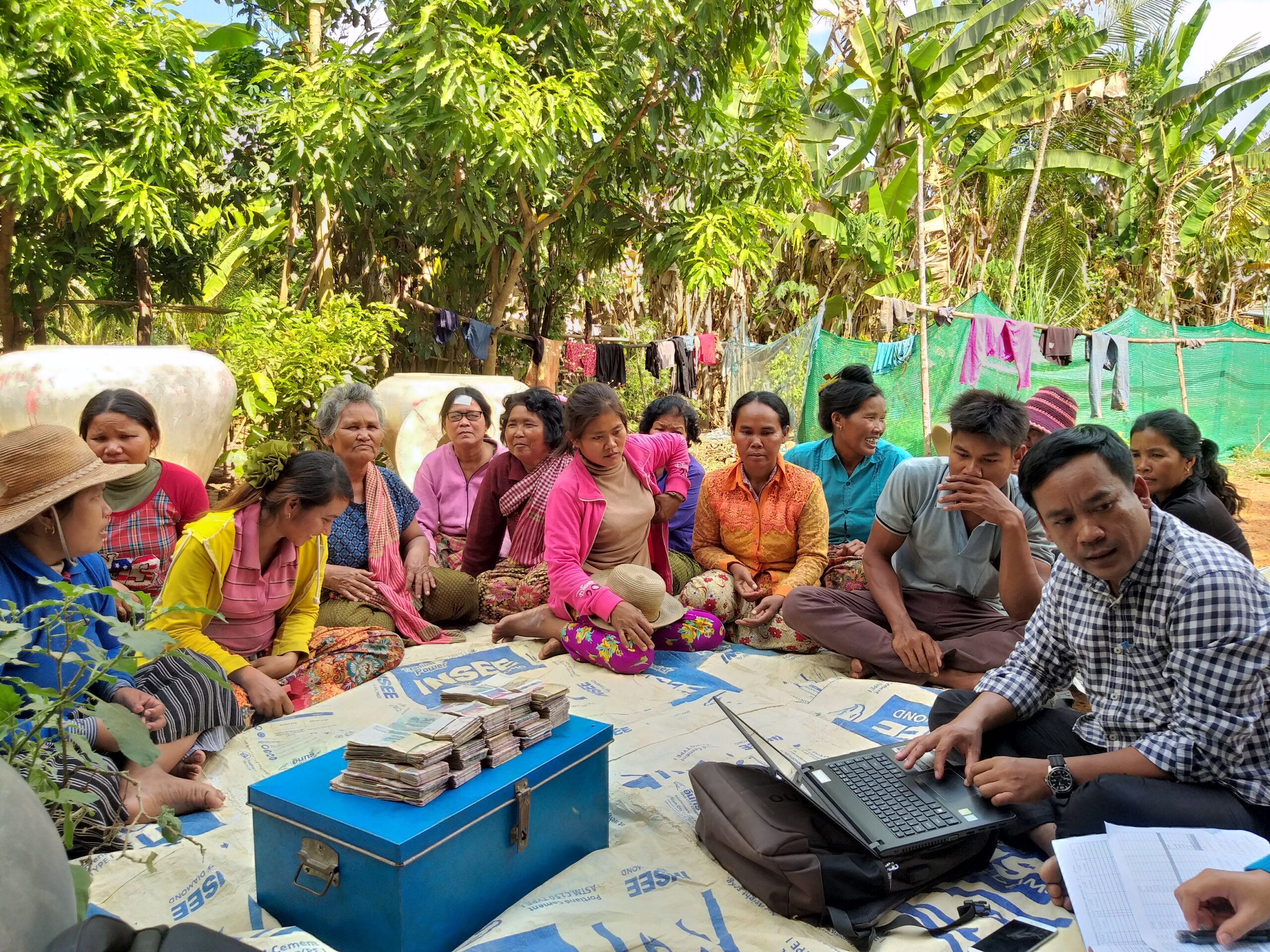
‘I enjoy interacting with local farmers to learn about their experiences and find ways in which TGF can be supportive,’ he says. Helping farmers develop financial literacy is one of his main preoccupations, and overseeing TGF’s village savings groups is a big part of that endeavour. The savings groups encourage villagers to set money aside and earn interest on their savings. The saved funds are made available to fellow villagers in the form of low-interest loans.
Grinning with pride, Chea tells us about the project’s growth: ‘When I joined, TGF had already set up 28 groups, with combined savings of roughly USD 50,000. Now we have 41 groups with close to USD 500,000 in total savings. A simple but well-planned intervention like this savings scheme can transform the farmers’ lives.’
What does he like about working at TGF? ‘We value and respect one another – co-workers as well as beneficiaries. Whenever we encounter a problem, we stay calm and find a solution together,’ he explains.
In his spare time, Chea enjoys cooking, camping and cycling in remote areas. In a few years’ time he hopes to start an agriculture business with his wife.

